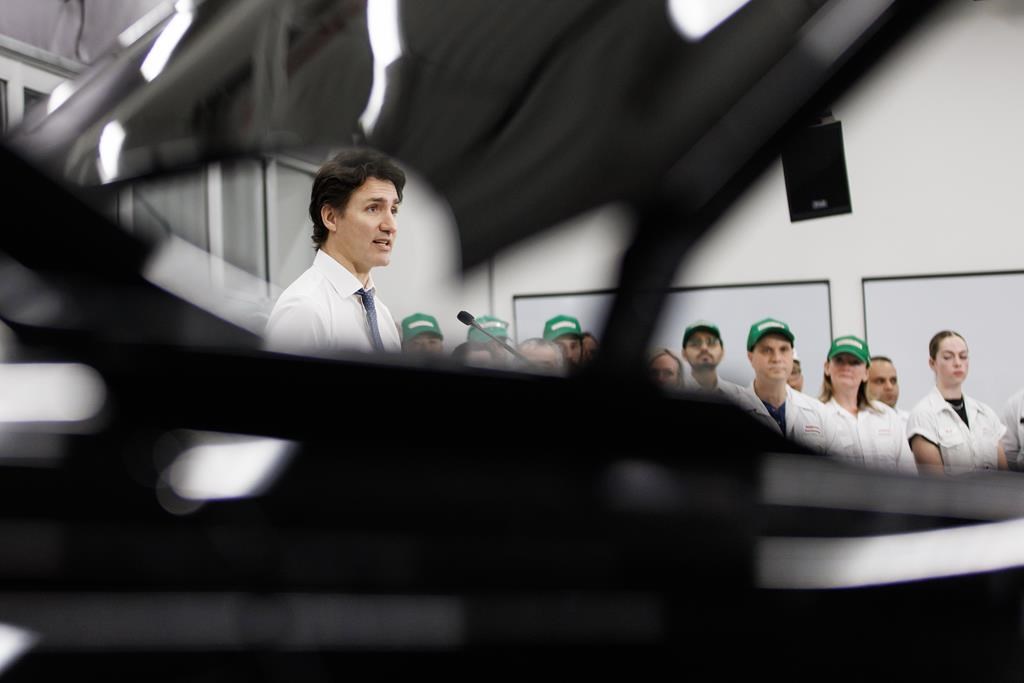Analysts fear Canadian businesses at risk of retaliation after Huawei arrest
Posted December 6, 2018 3:51 pm.
This article is more than 5 years old.
Canada’s arrest of Huawei Technologies’ chief financial officer in Vancouver is fuelling concern that Canadian business people in China are at risk of being arrested in retaliation.
That view is being advanced by international security analysts and former diplomats, following the arrest on Saturday of Meng Wanzhou.
Canada’s Justice Department says the United States is seeking Meng’s extradition, but is not providing further details about the case because of a court-ordered publication ban on her pending bail hearing.
Prime Minister Justin Trudeau said Thursday his office got “a few days’ notice that this was in the works” but he emphasized the actions of law enforcement officials are independent from politics.
“We are a country of an independent judiciary, and the appropriate authorities took the decisions in this case without any political involvement or interference.”
Chinese officials are loudly calling for Meng’s release and want Canada to reveal the reason for her arrest.
“The Chinese are likely to play tit for tat on this one and we should be ready for it,” said Fen Hampson, the director of the global security program at the Centre for International Governance Innovation based in southern Ontario.
David Mulroney, a former Canadian ambassador to China, says that while he doesn’t want to overstate the possibility of a Canadian being jailed, China will be looking for ways to strike back.
“China will be furious and look for means of punishing us, in part as an example for others. That could include tit for tat moves against Canadians,” he said.
Chinese Foreign ministry spokesman Geng Shuang told reporters Thursday that the Chinese government also wants Canadian officials to reveal the reasoning.
He also said Meng’s legal rights must be ensured, adding that neither Canadian nor American officials had so far responded to China’s concerns.
The comments come after China’s embassy in Ottawa issued a statement Wednesday calling Meng’s arrest a serious violation of human rights.
“(Canada) arrested a Chinese citizen (who did not violate) any Canadian or American law,” the statement said.
“We will closely follow the development of the issue and take all measures to resolutely protect the legitimate rights and interests of Chinese citizens.”
Canadian Justice Department spokesman Ian McLeod said the U.S. is seeking Meng’s extradition, but couldn’t provide further details about the case because of the publication ban in effect at Meng’s request.
Meng was changing flights in Canada when she was detained “on behalf of the United States of America” to face “unspecified charges” in New York, Huawei said in a statement.
“The company has been provided very little information regarding the charges and is not aware of any wrongdoing by Ms. Meng,” the statement said. “The company believes the Canadian and U.S. legal systems will ultimately reach a just conclusion.”
In April, China appealed to Washington to avoid damaging business confidence following a Wall Street Journal report that U.S. authorities were allegedly investigating whether Huawei violated sanctions on Iran amid spiralling technology tensions.
That same month, Washington barred Huawei rival ZTE Corp. from exporting U.S. technology in a separate case over exports to Iran and North Korea.
In its statement Wednesday, Huawei said the company complies with all laws and regulations in the countries where it operates, including applicable export control, sanction laws and regulations of the United Nations, the United States and the European Union.
Huawei, the biggest global supplier of network gear used by phone and internet companies, has been the target of deepening U.S. security concerns. Under U.S. President Donald Trump and his predecessor, Barack Obama, Washington has pressured European countries and other allies to limit the use of its technology.
The U.S. sees Huawei and smaller Chinese tech suppliers as possible fronts for Chinese spying and as commercial competitors. The Trump administration says they benefit from improper subsidies and market barriers.
With files from the Associated Press










